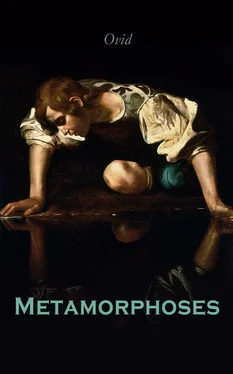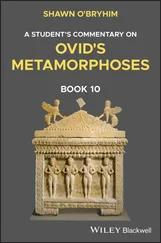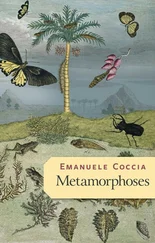28 Ichnobates. ]—Ver. 207. ‘Tracer.’ From the Greek ἰχνὸς, ‘a footstep,’ and βαίνω, ‘to go.’
29 Pamphagus. ]—Ver. 210. ‘Glutton.’ From πᾶν, ‘all,’ and φάγω, ‘to eat.’
30 Dorcæus. ]—Ver. 210. ‘Quicksight.’ From δέρκω, ‘to see.’
31 Oribasus. ]—Ver. 210. ‘Ranger.’ From ὄρος, ‘a mountain,’ and βαίνω, ‘to go.’
32 Nebrophonus. ]—Ver. 211. ‘Kill-buck.’ From νεβρὸς, ‘a fawn,’ and φονέω, ‘to kill.’
33 Lælaps. ]—Ver. 211. ‘Tempest.’ So called from its swiftness and power, λαίλαψ, signifying ‘a whirlwind.’
34 Theron. ]—Ver. 211. ‘Hunter.’ From the Greek, θερεύω, ‘to trace,’ or ‘hunt.’
35 Pterelas. ]—Ver. 212. ‘Wing.’ ‘Swift-footed,’ from πτερὸν, ‘a wing,’ and ἐλαύνω, ‘to drive onward.’
36 Agre. ]—Ver. 212. ‘Catcher.’ ‘Quick-scented,’ from ἄγρα, ‘hunting,’ or ‘the chase.’
37 Hylæus. ]—Ver. 213. ‘Woodger,’ or ‘Wood-ranger;’ the Greek ὕλη, signifying ‘a wood.’
38 Nape. ]—Ver. 214. ‘Forester.’ A ‘forest,’ or ‘wood,’ being in Greek, νάπη.
39 Pœmenis. ]—Ver. 215. ‘Shepherdess,’ From the Greek ποίμενις, ‘a shepherdess.’
40 Harpyia. ]—Ver. 215. ‘Ravener.’ From the Greek word ἅρπυια, ‘a harpy,’ or ‘ravenous bird.’
41 Ladon. ]—Ver. 216. This dog takes its name from Ladon, a river of Sicyon, a territory on the shores of the gulf of Corinth.
42 Dromas. ]—Ver. 217. ‘Runner.’ From the Greek δρόμος, ‘a race.’
43 Canace. ]—Ver. 217. ‘Barker.’ The word καναχὴ, signifies ‘a noise,’ or ‘din.’
44 Sticte. ]—Ver. 217. ‘Spot.’ So called from the variety of her colors, as στικτὸς, signifies ‘diversified with various spots,’ from στίζω, ‘to vary with spots.’ ‘Tigris’ means ‘Tiger.’
45 Alce. ]—Ver. 217. ‘Strong.’ From the Greek ἀλκὴ ‘strength.’
46 Leucon. ]—Ver. 218. ‘White.’ From λευκὸς, ‘white.’
47 Asbolus. ]—Ver. 218. ‘Soot,’ or ‘Smut.’ From the Greek ἄσβολος, ‘soot.’
48 Lacon. ]—Ver. 219. From his native country, Laconia.
49 Aëllo. ]—Ver. 219. ‘Storm.’ From ἄελλα, ‘a tempest.’
50 Thoüs. ]—Ver. 220. ‘Swift.’ From θοὸς, ‘swift.’ Pliny the Elder states, that ‘thos’ was the name of a kind of wolf, of larger make, and more active in springing than the common wolf. He says that it is of inoffensive habits towards man; but that it lives by prey, and is hairy in winter, but without hair in summer. It is supposed by some that he alludes to the jackal. Perhaps, from this animal, the dog here mentioned derived his name.
51 Lycisca. ]—Ver. 220. ‘Wolf.’ From the diminutive of the Greek word λύκος, ‘a wolf.’ Virgil uses ‘Lycisca’ as the name of a dog, in his Eclogues.
52 Harpalus. ]—Ver. 222. ‘Snap.’ From ἁρπάζω, ‘to snatch,’ or ‘plunder.’
53 Melaneus. ]—Ver. 222. ‘Black-coat.’ From the Greek, μέλας, ‘black.’
54 Lachne. ]—Ver. 222. ‘Stickle.’ From the Greek work λαχνὴ, signifying ‘thickness of the hair.’
55 Labros. ]—Ver. 224. ‘Worrier.’ From the Greek λάβρος, ‘greedy.’ Dicte was a mountain of Crete; whence the word ‘Dictæan’ is often employed to signify ‘Cretan.’
56 Agriodos. ]—Ver. 224. ‘Wild-tooth.’ From ἄγριος, ‘wild,’ and ὀδοῦς, ‘a tooth.’
57 Hylactor. ]—Ver. 224. ‘Babbler.’ From the Greek word ὑλακτέω, signifying ‘to bark.’
58 Melanchætes. ]—Ver. 232. ‘Black-hair.’ From the μέλας, ‘black,’ and χαιτὴ, ‘mane.’
59 Theridamas. ]—Ver. 233. ‘Kilham.’ From θὴρ, ‘a wild beast,’ and δαμάω, ‘to subdue.’
60 Oresitrophus. ]—Ver. 223. ‘Rover.’ From ὄρος ‘a mountain,’ and τρέφω ‘to nourish.’
61 I will take care. ]—Ver. 271. ‘Faxo,’ ‘I will make,’ is sometimes used by the best authors for ‘fecero;’ and ‘faxim’ for ‘faciam,’ or ‘fecerim.’
62 Beroë. ]—Ver. 278. Iris, in the fifth book of the Æneid (l. 620), assumes the form of another Beroë; and a third person of that name is mentioned in the fourth book of the Georgics, l. 34.
63 Epidaurian. ]—Ver. 278. Epidaurus was a famous city of Argolis, in Peloponnesus, famous for its temple, dedicated to the worship of Æsculapius, who was the tutelary Divinity of that city.
64 Could not endure. ]—Ver. 308. ‘Corpus mortale tumultus Non tulit æthereos,’ is rendered by Clarke, ‘her mortal body could not bear this æthereal bustle.’
65 The Nyseian Nymphs. ]—Ver. 314. Nysa was the name of a city and mountain of Arabia, or India. The tradition was, that there the Nyseian Nymphs, whose names were Cysseis, Nysa, Erato, Eryphia, Bromia, and Polyhymnia, brought up Bacchus. The cave where he was concealed from the fury of Juno, was said to have had two entrances, from which circumstance Bacchus received the epithet of Dithyrites. Servius, in his commentary on the sixth Eclogue of Virgil (l. 15), says that Nysa was the name of the female that nursed Bacchus. Hyginus also speaks of her as being the daughter of Oceanus. From the name ‘Nysa,’ Bacchus received, in part, his Greek name ‘Dionysus.’
66 Twice born. ]—Ver. 318. Clarke thus translates and explains this line—‘They tell you, that Jupiter well drenched;’ i.e. ‘fuddled with nectar,’ etc.
67 Aonia. ]—Ver. 339. Aonia was a mountainous district of Bœotia, so called from Aon, the son of Neptune, who reigned there. The name is often used to signify the whole of Bœotia.
68 Liriope. ]—Ver. 342. She was the daughter of Oceanus and Tethys, and was the mother of the youth Narcissus, by the river Cephisus. Her name is derived from the Greek λείριον, ‘a lily.’
69 Many a youth. ]—Ver. 353. Clarke translates ‘multi juvenes,’ ‘many young fellows.’
70 Used to detain. ]—Ver. 364. Clarke translates ‘Illa Deam longo prudens sermone tenebat Dum fugerent Nymphæ,’ ‘She designedly detained the Goddess with some long-winded discourse or other till the Nymphs ran away.’ He translates ‘garrula,’ in line 360, ‘the prattling hussy.’
71 Narcissus. ]—Ver. 370. This name is from the Greek word ναρκᾷν, ‘to fade away,’ which was characteristic of the youth’s career, and of the duration of the flower.
72 Sulphur spread around. ]—Ver. 372. These lines show, that it was the custom of the ancients to place sulphur on the ends of their torches, to make them ignite the more readily, in the same manner as the matches of the present day are tipped with that mineral.
73 Rushing from the woods. ]—Ver. 388. ‘Egressaque sylvis.’ Clarke renders, ‘and bouncing out of the wood.’
74 Rhamnusia. ]—Ver. 406. Nemesis, the Goddess of Retribution, and the avenger of crime, was the daughter of Jupiter. She had a famous temple at Rhamnus, one of the ‘pagi,’ or boroughs of Athens. Her statue was there, carved by Phidias out of the marble which the Persians brought into Greece for the purpose of making a statue of Victory out of it, and which was thus appropriately devoted to the Goddess of Retribution. This statue wore a crown, and had wings, and holding a spear of ash in the right hand, it was seated on a stag.
Читать дальше












